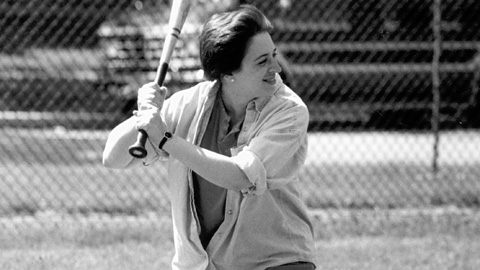Posted on July 12,
2018
Kagan Eat It Too
Stare decisis vs. living Constitution
by
Daniel
Clark
In the Janus v.
AFSCME Supreme Court decision, which held that public sector unions cannot compel
dues from nonunion members, Justice Elena Kagan dissented from the overturning
of the 1977 Abood v. Board of Education ruling on the
basis of the judicial concept of stare
decisis (“it is as it has been decided”).
If, however, Abood
must stand, simply because “it has been decided,” then how does she square that
argument with her statement during her confirmation hearings that, “the
constitutional law that we live under does develop over time”?
 This
“living Constitution” paradigm cannot honestly coexist with stare decisis, for the simple reason
that the Constitution must have some degree of permanence in order for a
precedent to be rooted in it. What Kagan
would have her colleagues assume is that certain judicial constructs must stand
forever, even as the constitutional sands beneath them shift and erode away.
This
“living Constitution” paradigm cannot honestly coexist with stare decisis, for the simple reason
that the Constitution must have some degree of permanence in order for a
precedent to be rooted in it. What Kagan
would have her colleagues assume is that certain judicial constructs must stand
forever, even as the constitutional sands beneath them shift and erode away.
She and the other liberal justices must not be allowed
to have it this way. If one accepts the
premise that we have a “living Constitution” that spontaneously amends itself,
then one must allow that a ruling based on such a document several decades ago
might no longer be relevant.
To conservatives, stare
decisis is merely a guideline, telling them that when the Supreme Court has
dealt with an issue previously, the current justices should respect the
opinions of their predecessors. This,
however, presumes judicial integrity on those previous justices’ behalf. If they were not faithful to the Constitution
in their decision, then future courts are not obliged to be faithful to their
ruling. In short, a justice’s loyalty
should be to the law, and not to his elders in the Black Robe Lodge.
The very idea of a “living Constitution” that changes
its meaning without going through the prescribed amendment process is openly
disdainful of our Constitution. In this
manner, liberal justices usurp the power to amend the Constitution from the
elected representatives of the people.
Thus, when someone claims to believe in a “living Constitution,” what he
really means is that the American people should have no role in shaping the
fundamental laws under which they must live.
 It
should be needless to say that any ruling that is based on this concept is
absolutely unfaithful to the Constitution, and therefore does not deserve the
presumption of stare decisis. Take every “living Constitution” advocate’s
favorite ruling, Roe v. Wade, which
was based on absolutely nothing in the actual text of the Constitution. If Roe
is justified by the assumption that the Constitution had evolved to mean
something it does not say, then why would it be assumed that it hasn’t
continued to evolve over the past 45 years, in such a way that would render
that decision moot?
It
should be needless to say that any ruling that is based on this concept is
absolutely unfaithful to the Constitution, and therefore does not deserve the
presumption of stare decisis. Take every “living Constitution” advocate’s
favorite ruling, Roe v. Wade, which
was based on absolutely nothing in the actual text of the Constitution. If Roe
is justified by the assumption that the Constitution had evolved to mean
something it does not say, then why would it be assumed that it hasn’t
continued to evolve over the past 45 years, in such a way that would render
that decision moot?
The only consistency to this approach is that the
Constitution must mean whatever liberals wish it to mean on a case-by-case
basis. Because liberals wanted to
legalize abortion, then “the right of the people to be secure in their persons,
houses, papers and effects, against unreasonable searches and seizures,” has
somehow transformed itself into a generalized “right to privacy,” which,
contrary to the meaning of that phrase, encompasses a right to dismember and
kill an innocent third party. So how do
we know that this right has not since evolved away? Because liberals want to maintain the
legality of abortion. Any more
irrelevant questions?
So, the answer to how liberals like Kagan square the
living Constitution paradigm with the principle of stare decisis is that they don’t, nor do they ever feel the need to
do so. To them, the only important thing
is the outcome. Had liberal justices not
perverted the Fourth Amendment, they might just as soon have chosen the Third,
and ruled that a baby in the womb is akin to a soldier being quartered in a
house without the consent of its owner.
As anyone who’s read the majority opinion from Roe is aware, there is no argument too spurious for liberals to
pretend to take seriously.
On the rare occasions when liberal opinion agrees with
the Constitution, liberal judges will never entertain the proposition that our
“living Constitution” has evolved to mean something it doesn’t say. Nor do they believe in stare decisis if the precedent disagrees with them, as it did in
the Bowers v. Hardwick sodomy ruling
that the Court overturned in Lawrence v.
Texas. In short, liberals do not
really have a coherent judicial philosophy, other than that they must get
anything they want.
The Shinbone: The
Frontier of the Free Press